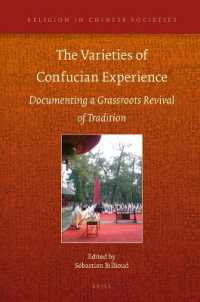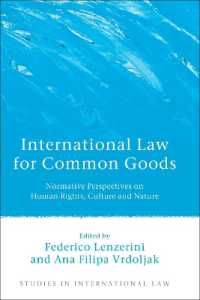Full Description
This unorthodox account of 1960s Black thought rigorously details the field's debts to German critical theory and explores a forgotten tradition of Black singularity.
Phenomenal Blackness examines the changing interdisciplinary investments of key mid-century Black writers and thinkers, including the growing interest in German philosophy and critical theory. Mark Christian Thompson analyzes this shift in intellectual focus across the post-war decades, placing Black Power thought in a philosophical context.
Prior to the 1960s, sociologically oriented thinkers such as W. E. B. Du Bois had understood Blackness as a singular set of socio-historical characteristics. In contrast, writers such as Amiri Baraka, James Baldwin, Angela Y. Davis, Eldridge Cleaver, and Malcolm X were drawn to notions of an African essence, an ontology of Black being. With these perspectives, literary language came to be seen as the primary social expression of Blackness. For this new way of thinking, the works of philosophers such as Adorno, Habermas, and Marcuse were a vital resource, allowing for continued cultural-materialist analysis while accommodating the hermeneutical aspects of Black religious thought. Thompson argues that these efforts to reimagine Black singularity led to a phenomenological understanding of Blackness—a "Black aesthetic dimension" wherein aspirational models for Black liberation might emerge.
Contents
Introduction • The Essence of the Matter
One • The Politics of Black Friendship: Gadamer, Baldwin, and the Black Hermeneutic
Two • The Aardvark of History: Malcom X, Language, and Power
Three • Black Aesthetic Autonomy: Ralph Ellison, Amiri Baraka, and "Literary Negro-ness"
Four • The Revolutionary Will Not Be Hypnotized: Eldridge Cleaver and Black Ideology
Five • Unrepeatable: Angela Y. Davis and Black Critical Theory
Conclusion • Black Aesthetic Theory
Acknowledgments
Notes
References
Index








